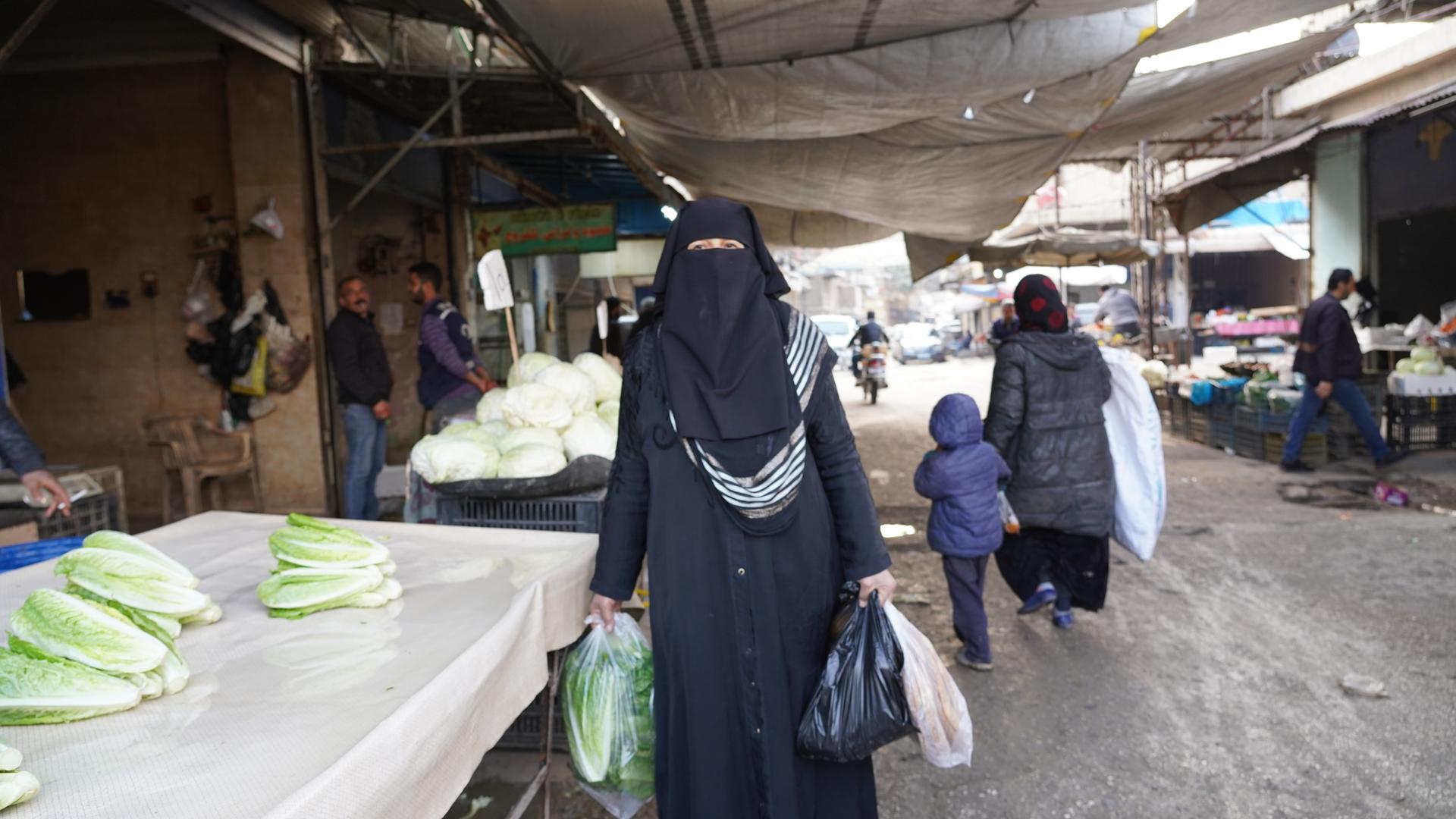The days leading up to the holy month of Ramadan are some of the busiest for store owners in the central market in the city of Qamishli in northeast Syria.
Abdel Aziz Bessam has been selling meat at the market in Qamishli for the past 35 years.
He said the only time he closed his store was when ISIS came close to the city. He and his family fled to the nearby village for safety.
The days of running away from ISIS are mostly over, he said, but recent attacks by Turkey and militia groups in neighboring Iraq have terrified the people here.
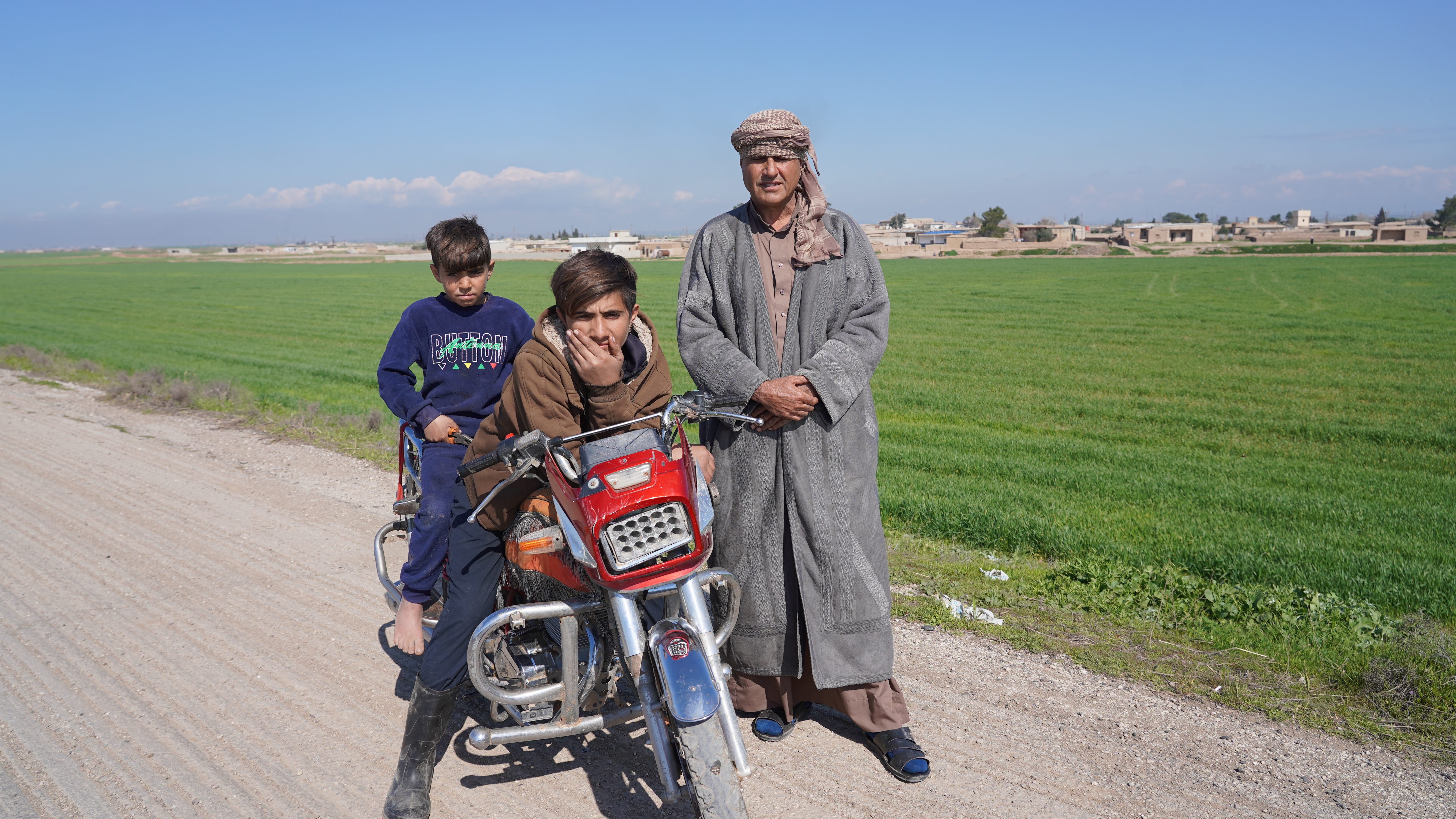
After more than a decade of war, Syria is a divided country: The government controls most of the territory, but in the northeast, the Kurds run an autonomous region, and in the northwest, opposition groups are in charge. The autonomous region was established in 2012 and is not officially recognized internationally or by the Syrian government.
Over the years, the region has become a strategic location for American troops in the Middle East. The US considers the Kurds as a close ally in the fight against ISIS.
Qamishli is a predominantly Kurdish city in northeastern Syria. People here say they are proud of their identity and the social freedoms that the Kurdish administration provides women. (For example the charter of the semiautonomous Syrian Federation of Kurdistan, founded in 2012, requires that women must hold a minimum of 40% of all government posts. Every Kurdish Syrian public institution must also have two co-presidents, one male and one female.)
But the Kurds have enemies. Mainly, Turkey, which is a stone’s throw away from here. Turkey considers the Syrian Kurds as part of the PKK, a militant group that it sees as a security threat.
Last October, Turkish drones hit water and electricity infrastructure nearby and killed dozens of people.
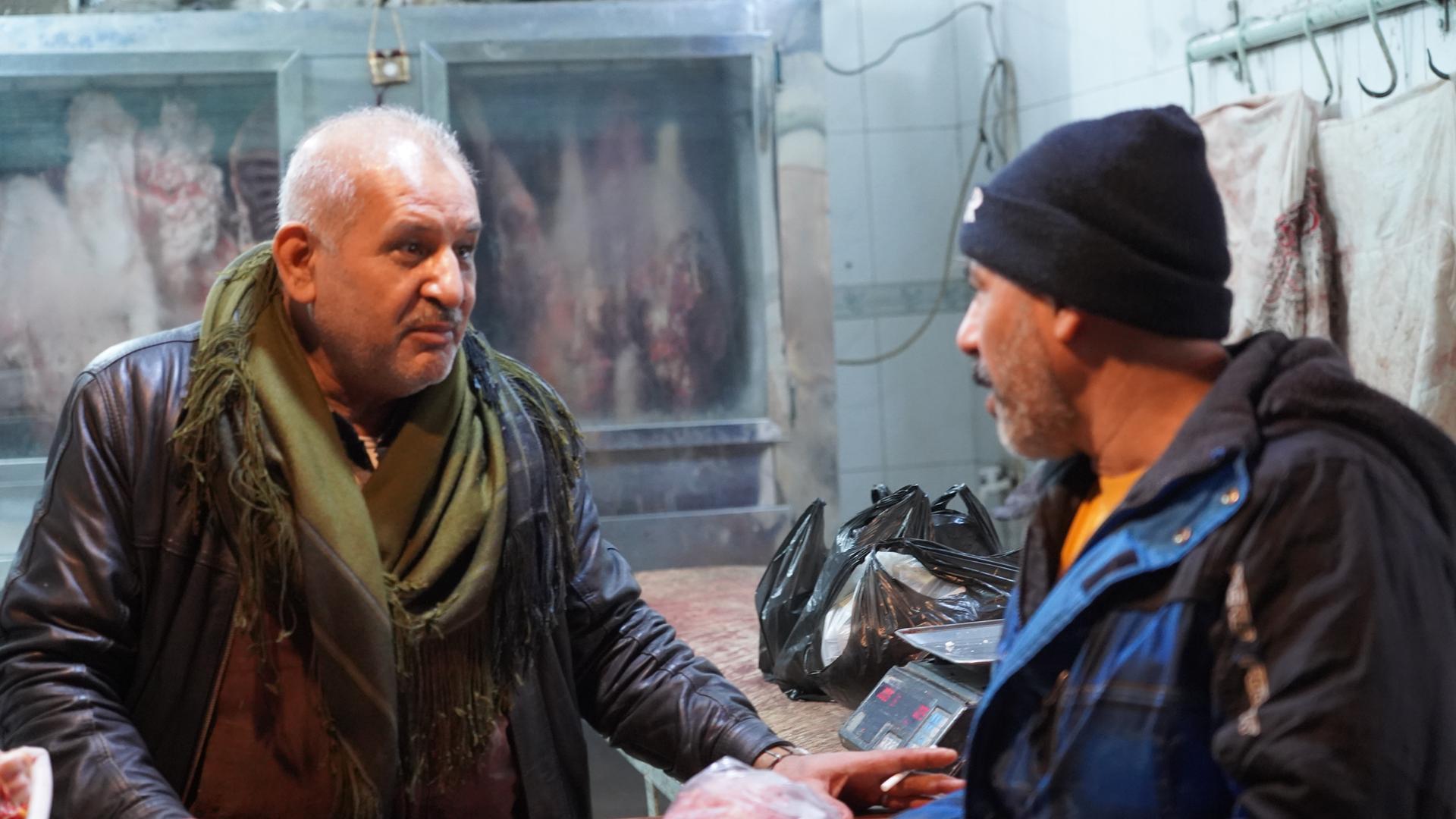
One major deterrence for more aggressive Turkish assaults is the presence of roughly 900 American forces in this part of Syria.
The World requested a visit to US bases but did not hear back.
On a recent visit near the Rmeilan airfield in Syria’s northern province of Hasakah, armored vehicles carrying US flags escorted trucks to the base.
According to the Combined Joint Task Force — Operation Inherent Resolve’s report to Congress in October — (OIR is the United States military’s operational name for the international war against ISIS, including both a campaign in Iraq and a campaign in Syria) — militia groups based in Iraq carried out at least 134 attacks on US interests in Iraq and Syria since last October, injuring US and coalition personnel.
“The attacks were linked to the Israel-Hamas conflict that erupted in early October. Militias used a variety of one-way attack drones, rockets, and missiles in neardaily attacks on U.S. and Coalition forces,” the report said, adding that some operations and training of Kurdish forces had to be paused because of the insecurity.
Family members and other nonessential US government personnel and contractor staff from the US Embassy in Baghdad and the US Consulate General in Erbil were ordered to leave as a precaution, the report said.
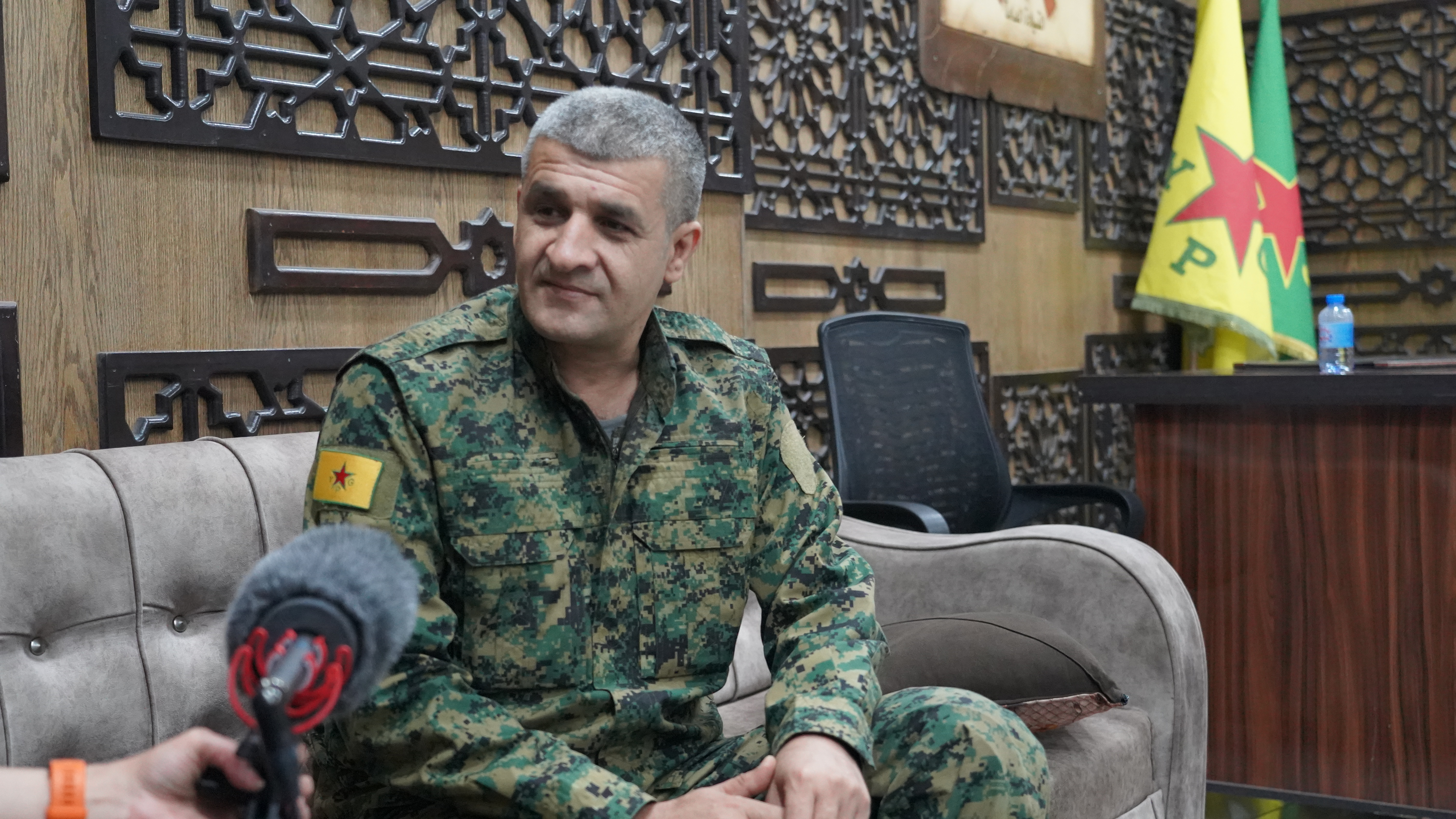
In Jordan, three US service members were killed, and more than 40 others were injured in similar attacks by militia groups.
The rise in insecurity in Syria and Iraq has prompted speculation about a possible US withdrawal.
A spokesperson for the US Department of Defense said in an email to The World following the attacks on US bases in Iraq and Syria that he had “nothing to announce regarding any kind of troop withdrawal from Syria,” and that “U.S. troops in Iraq and Syria are there as part of the coalition to defeat ISIS.”
About three miles away from the US base at Rmeilan airfield sits the village of Ali Agha.
Fifty-year-old Ahmad Ali lives here with his family. He told The World that the Americans come to his village on patrols.
“They ask if we need anything. We tell them we need generators for electricity and water. They leave and nothing happens,” he said.
The US forces are not tasked with nation-building in Syria. Their mission is to fight ISIS and train and support the local Kurdish forces.
Ali said he feels more secure with the Americans around.
“If they leave, ISIS or Turkey will destroy us,” he said.
Kurdish military officials are also worried about more insecurity in the region.
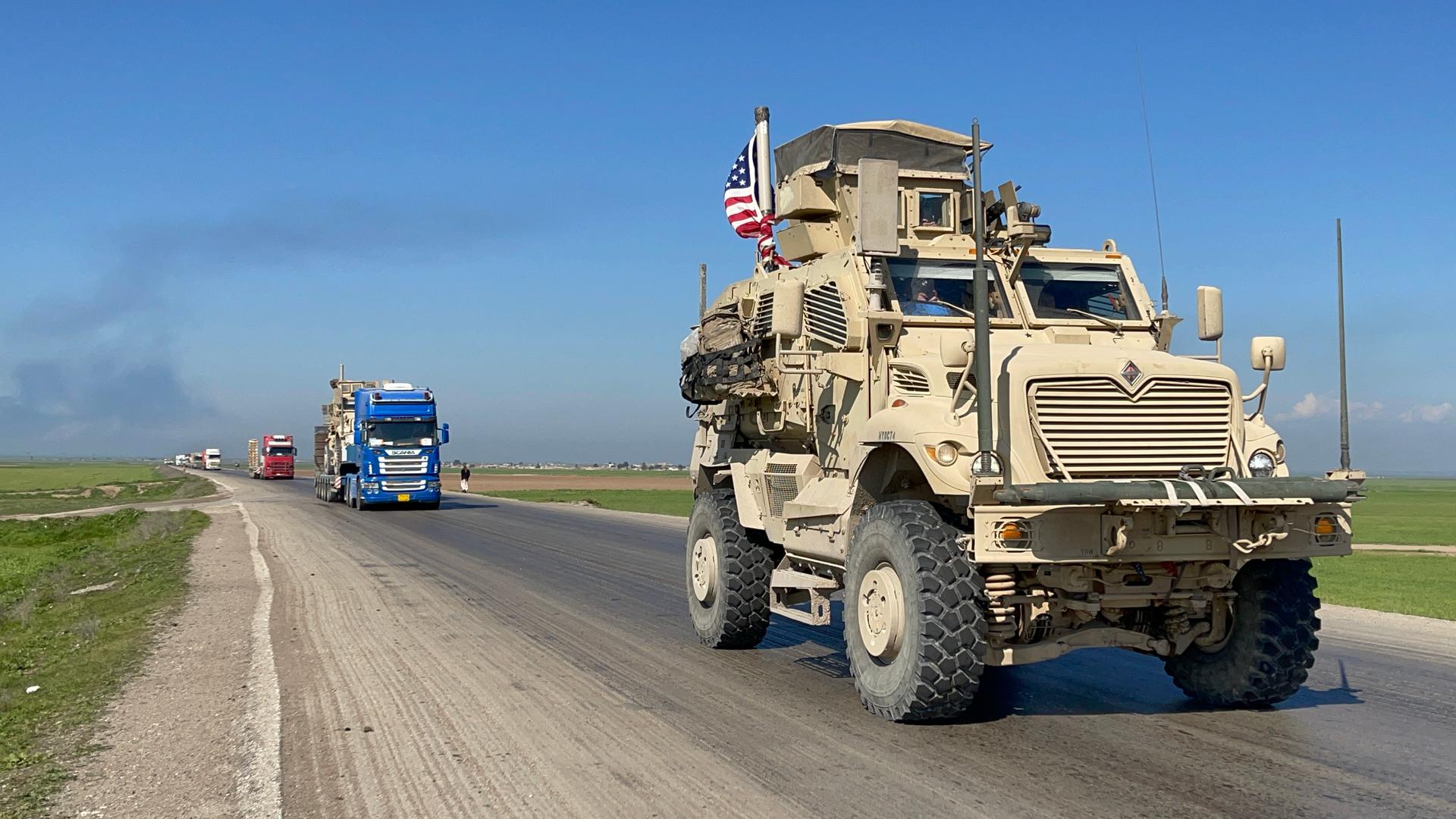
“The attacks on American forces have destabilized northeastern Syria,” said Nuri Mahmoud, spokesperson for the YPG or People’s Protection Units, which is part of the Syrian Kurdish-led forces — known as the Syrian Democratic Forces — backed by the United States.
Mahmoud, speaking with The World in a Soviet-style building in the city of Hasaka, pointed to a drone attack last month on one of the bases that the Kurds share with US forces. Six Kurdish fighters were killed in that attack.
“Turkish President Recep Tayyip Erdoğan wants to do the same thing to us that Israel is doing to Palestinians in Gaza,” Mahmoud said, “and he needs to be stopped.”
The commander, watching the upcoming US elections closely, explained that he hopes that the next American president will continue to support the Kurds.
“If Donald Trump is elected again, I hope he doesn’t repeat what he did in 2019,” he said.
In 2019, then-President Donald Trump withdrew American forces from northern Syria, giving the green light to Turkey to advance into northern Syria.
Back at the central market in the city of Qamishli, Bessam said he feels indifferent about a possible US withdrawal.
“[The Americans] have their own interests,” he said, “like benefitting from the oil and the wheat.”
He said he knows that because when Turkey recently attacked this area, “the Americans stayed silent.”
Mohammed Hassan supported reporting for this piece.
